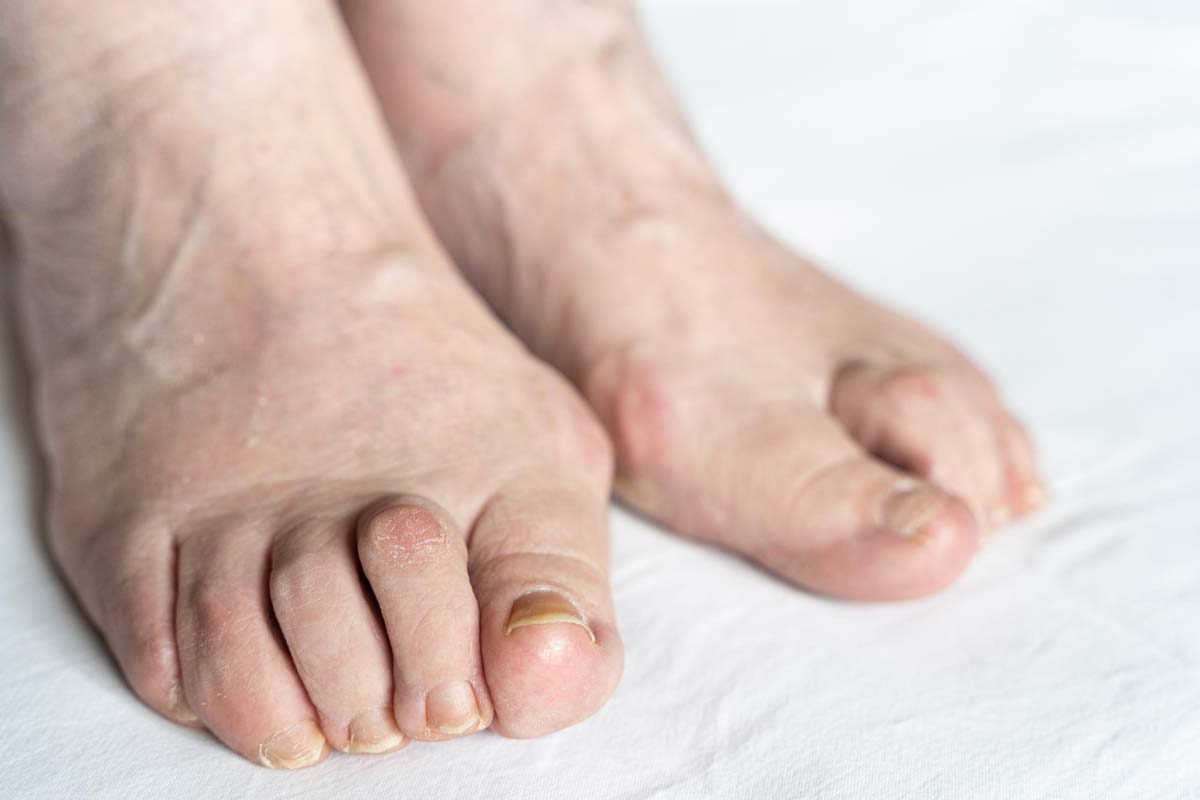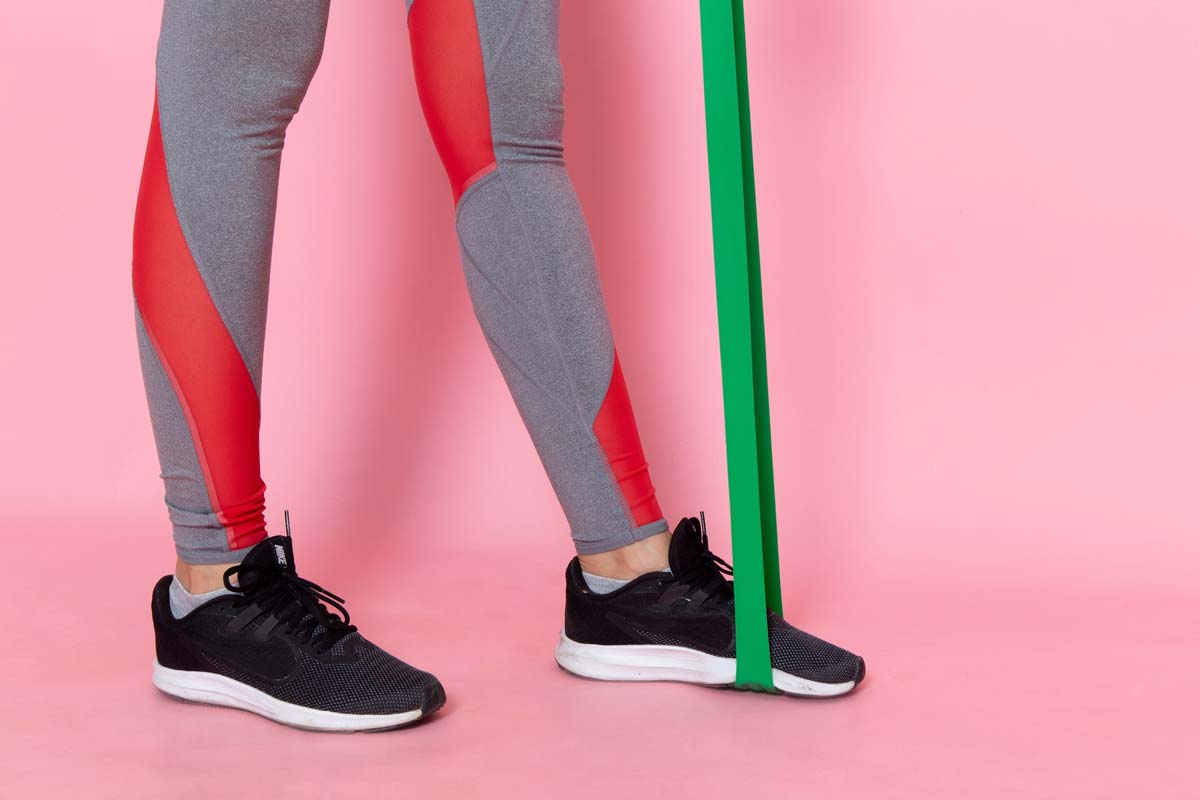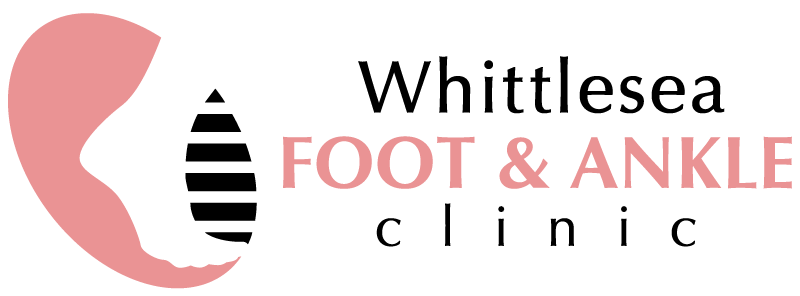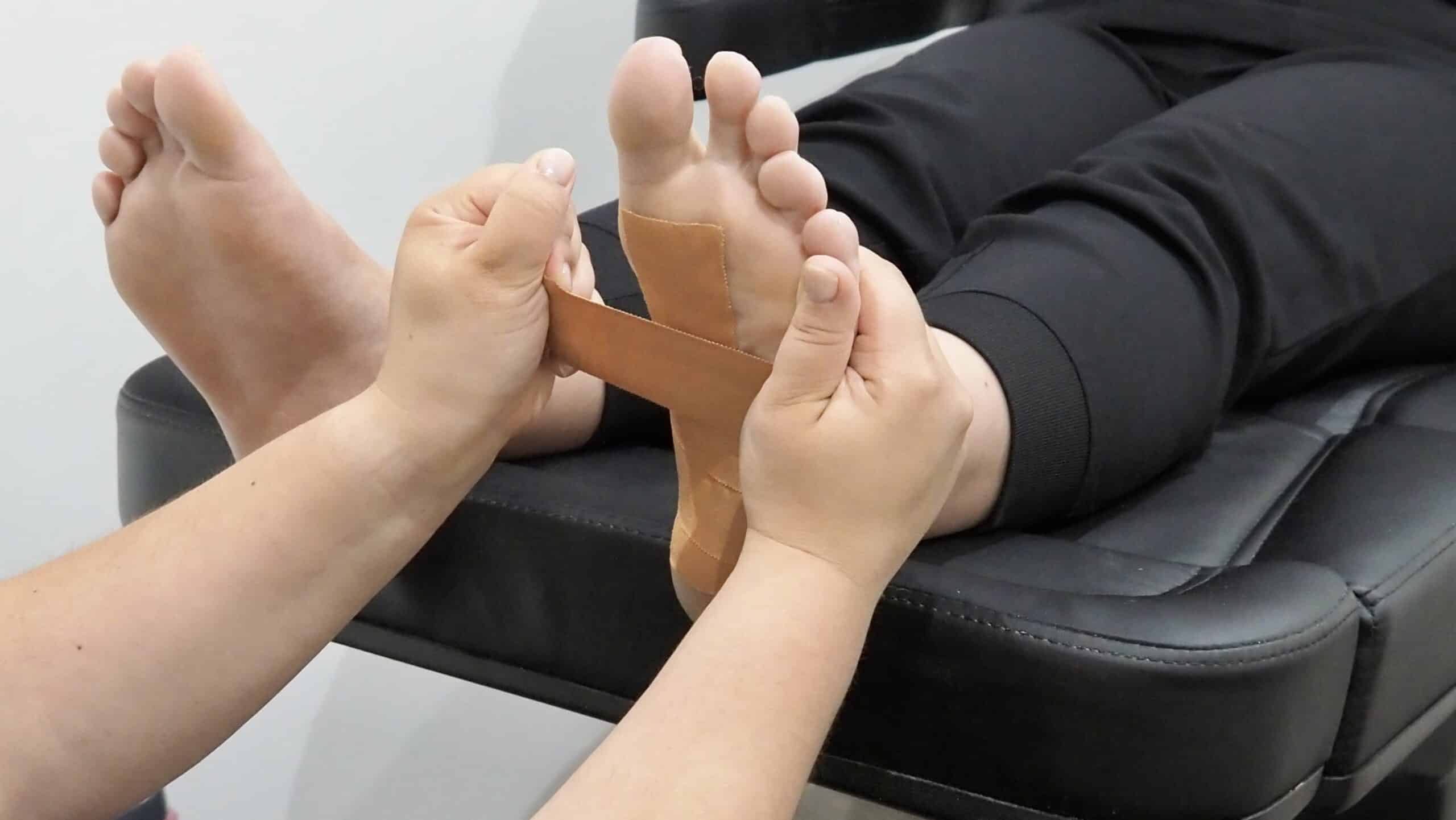Footwear play a major role not only in protecting our feet but providing them with support, cushioning and stability.
Incorrect footwear can lead to a range of issues and complications including:
- Areas of callus and corns
- Skin abrasions caused from rubbing
- Blisters
- Bunions
- Claw or hammer toes
- Pain of the feet and lower legs
- Increased risk of falls and trauma events

As each person’s foot is different and works in different ways, each shoe should be specific and prescribed to a person’s foot. Many runners come in a range of styles, each designed to fit and support a specific foot type. Footwear should also be specific to activity, for example a cross trainer styles shoe should be worn for court sports that require side to side movements and pivoting rather than a shoe designed for running.

Your podiatrist will be able to assess your footwear in relation to your specific foot, pain and activities in order to suggested and prescribe the best shoes for you.
Your podiatrist will also be able to identify any risk factors which may change what shoes you are able to wear, such as reduced feeling of the feet associated with diabetes or bunions which cause blisters and areas of rubbing.




